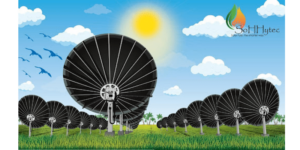Aspartame, an artificial non-saccharide sweetener used as a sugar substitute in various food and beverage products, is under the spotlight as it is set to be declared a possible carcinogen by the International Agency for Research on Cancer (IARC), a research arm of the World Health Organisation.
Aspartame is 200 times sweeter than sucrose and is commonly used in foods and beverages such as zero-sugar or diet sodas, sugar-free gums, diet drink mixes, reduced-sugar condiments, and sugar-free gelatin. Notably, it is also a constituent of tabletop sweeteners.
This announcement has been a point of contention, with industry and regulators fearing that such a declaration could sow confusion among the public. The IARC’s verdict is based on the available published evidence and serves to assess potential hazards, not the safe consumption levels of a product.
The safe consumption guidelines come from a separate committee, the Joint WHO and Food and Agriculture Organisation’s Expert Committee on Food Additives (JECFA), which is also reviewing aspartame use this year. Their findings will be announced on the same day as the IARC’s decision.
Aspartame has been a subject of extensive study over the years. An observational study in France showed that people who consumed larger amounts of artificial sweeteners, including aspartame, had a slightly higher cancer risk.
However, the study could not prove that aspartame caused the increased cancer risk. This follows a study from the early 2000s that reported some cancers in mice and rats were linked to aspartame, though the methodology of this study has been questioned.
The potential carcinogenic classification of aspartame is intended to encourage more research that will aid agencies, consumers, and manufacturers in drawing firmer conclusions. However, it’s also expected to reignite debates over the role of the IARC and the safety of sweeteners more broadly. Notably, this comes after the WHO published guidelines last month advising consumers not to use non-sugar sweeteners for weight control, a move that stirred controversy within the food industry.
This possible reclassification of aspartame could have significant implications for the food and beverage industry. Companies may face pressure to revisit their recipes and consider alternatives. As we await the official announcement, it’s clear that the debate over aspartame and other artificial sweeteners is far from over.




![Read more about the article [Funding alert] Human resource tech startup HONO raises $5M in Series A led by Aakash Chaudhry](https://blog.digitalsevaa.com/wp-content/uploads/2022/04/funding-YS-1649001014853-300x150.png)

![Read more about the article [Funding alert] Credgenics raises $25M in Series A round at over $100M valuation](https://blog.digitalsevaa.com/wp-content/uploads/2021/08/Imagedej8-1628577393111-300x150.jpg)
![Read more about the article [Funding alert] Conversational AI platform ORAI raises Rs 3.6 Cr from Inflection Point Ventures](https://blog.digitalsevaa.com/wp-content/uploads/2021/04/Imagew68e-1619072368451-300x150.jpg)


